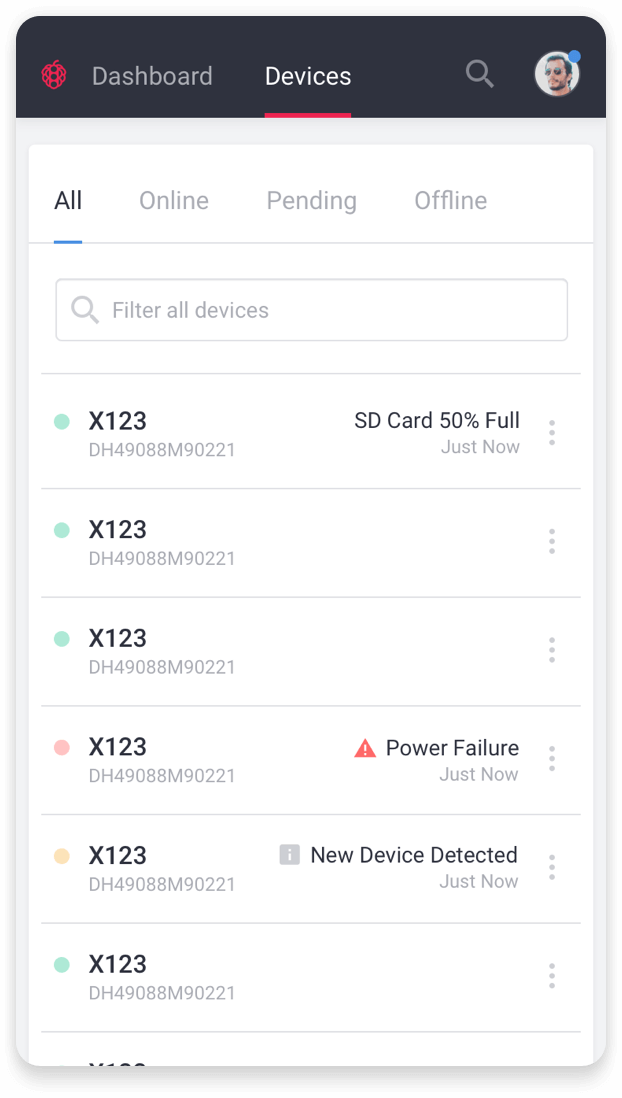In the rapidly evolving landscape of technology, managing IoT devices remotely has become a crucial aspect for businesses aiming to enhance operational efficiency. The RemoteIoT Platform emerges as a powerful solution, enabling seamless control and management of Raspberry Pi devices from any location. This platform not only simplifies remote management but also ensures secure and efficient operations, making it an indispensable tool for modern enterprises.
Effortless remote management is no longer a luxury but a necessity in today's interconnected world. With the RemoteIoT Platform, organizations can boost their efficiency by streamlining the management of multiple Raspberry Pi devices. By leveraging advanced technologies and intuitive interfaces, this platform empowers users to monitor, configure, and troubleshoot their devices with ease, ultimately driving productivity and reducing downtime.
Scalable Resource Management
The concept of virtual replication in cloud computing offers a flexible and scalable approach to managing large numbers of resources. This method involves creating replicas of IoT hubs within the cloud environment, allowing for efficient distribution and handling of data across various devices. By selecting the most suitable IoT Hub replica based on specific requirements, organizations can optimize resource allocation and ensure seamless operations.
This strategy is particularly beneficial for managing highly heterogeneous devices, often referred to as smart objects, which are expected to interconnect in billions in the future. The Internet of Things (IoT) continues to expand, necessitating robust platforms capable of handling such complexity. Virtual replication addresses these challenges by providing a dynamic infrastructure that adapts to varying workloads and demands.
ResearchGate serves as a valuable repository for exploring cutting-edge research on IoT and cloud-based solutions. Here, users can find, read, and cite relevant studies that support the development and implementation of scalable management systems, further enhancing the capabilities of modern IoT networks.
IoT Control Made Simple
For beginners looking to delve into IoT projects, the Arduino Nano 33 IoT board paired with Arduino Cloud offers an accessible entry point. This setup allows users to create remote app controls effortlessly, enabling them to manage devices such as LEDs through a user-friendly interface. Setting up an IoT project in the cloud involves several straightforward steps, including configuring the necessary components and integrating them into a cohesive system.
To get started, one must identify the required components, such as sensors and actuators, and ensure they are compatible with the Arduino Nano 33 IoT board. Additionally, setting up the Arduino Create Agent facilitates communication between the device and the cloud, streamlining the entire process. Creating a Thing within the Arduino Cloud involves defining cloud variables and designing dashboards that provide real-time insights into device performance.
Resources such as YouTube tutorials, Facebook pages, and Twitter accounts dedicated to Arduino projects offer invaluable guidance for newcomers. These platforms provide comprehensive guides, code snippets, and community support, empowering users to successfully implement their IoT projects and expand their skills in the realm of remote device management.
Revolutionizing Edge Computing
The integration of AI at the edge represents a significant advancement in computational capabilities, particularly when applied to devices like the Raspberry Pi 5. Powered by the Hailo 8 module, the AI HAT+ delivers exceptional performance, enabling simultaneous neural network execution at unprecedented speeds. This innovation outperforms previous iterations, making AI acceleration both accessible and efficient for a wide range of applications.
Real-world use cases include smart manufacturing, where real-time defect detection enhances quality control processes. In smart cities, traffic monitoring and pedestrian tracking benefit from ultra-low latency, improving urban planning and safety measures. Retail analytics leverage customer behavior analysis and inventory management to optimize business strategies, while security systems employ advanced object detection and facial recognition for enhanced protection.
Agricultural tech also stands to gain from this technology, utilizing crop health monitoring and yield optimization to address global food security challenges. Contributions from developers like Shakhizat Nurgaliyev and Madiyar Aitbayev highlight the collaborative nature of technological advancements, ensuring continuous improvement and innovation in the field of edge computing.
Secure Remote Access Solutions
RemoteIoT provides a reliable means of accessing Raspberry Pi devices remotely through Secure Shell (SSH) technology. This method ensures secure connections by encrypting data transmissions between the user and the device, mitigating potential vulnerabilities associated with remote access. Implementing best practices, such as regular software updates and strong authentication protocols, further strengthens the security framework.
As organizations deploy fleets of Raspberry Pi devices, effective management becomes paramount. Platforms like RemoteIoT simplify this process by offering centralized control over multiple devices, streamlining tasks such as monitoring, configuration, and troubleshooting. By adopting recommended practices, administrators can maintain optimal performance while safeguarding against unauthorized access.
User experiences shared on platforms like Reddit underscore the importance of selecting appropriate tools for managing large numbers of Raspberry Pi devices. Discussions surrounding the best ways to manage extensive fleets highlight the need for scalable solutions that accommodate growing demands without compromising security or efficiency. Ultimately, leveraging advanced technologies like RemoteIoT empowers organizations to achieve greater control and flexibility in their IoT deployments.
Enhancing Health Monitoring Systems
Incorporating IoT solutions into health monitoring systems presents opportunities for improving organizational efficiency and patient care. By leveraging mature technologies such as Raspberry Pi devices, organizations can develop robust systems capable of collecting and analyzing vital health data in real time. These systems often integrate additional components like camera modules, RFID readers, and servo motors to enhance functionality and accuracy.
Remote management capabilities enable healthcare providers to monitor patients' conditions from any location, facilitating timely interventions and personalized care plans. This approach not only improves patient outcomes but also reduces costs associated with traditional monitoring methods. Furthermore, the ability to remotely configure and update devices ensures consistent performance and adherence to industry standards.
As IoT continues to transform the healthcare sector, embracing innovative solutions that prioritize security and scalability remains essential. Organizations investing in smart health monitoring systems position themselves at the forefront of technological advancements, ready to meet the evolving needs of patients and stakeholders alike. Through strategic implementation and continuous improvement, these systems contribute significantly to enhancing overall healthcare delivery and management.

